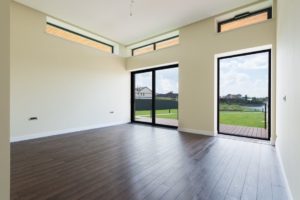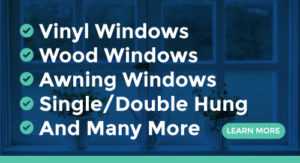
10 Things You Should Know Before Replacing Your Windows
Replacing your home’s windows is not just about enhancing its aesthetic appeal; it’s a strategic move towards improving energy efficiency, increasing property value, and ensuring your living space remains comfortable and secure. Whether driven by the need to reduce energy bills, address wear and tear, or update your home’s style, understanding the intricacies of window replacement is crucial. This guide outlines ten essential aspects to consider, ensuring you make informed decisions that align with your home improvement goals.
1. Understanding Window Energy Efficiency Ratings
When it comes to window replacement, energy efficiency is a key factor. Windows with high energy efficiency ratings can significantly reduce your heating and cooling costs. Key ratings include the U-factor, which measures the window’s insulation properties, and the Solar Heat Gain Coefficient (SHGC), indicating how well the window blocks heat from the sun. Look for windows with a lower U-factor and appropriate SHGC for your climate to maximize energy savings.
Key ratings to understand include:
- U-factor: Measures the window’s insulation effectiveness. Lower values indicate better insulation.
- Solar Heat Gain Coefficient (SHGC): Reflects the window’s ability to block heat from sunlight. Lower SHGC values are better in warmer climates to reduce cooling needs.
- Visible Transmittance (VT): Indicates the amount of visible light transmitted. Higher values mean more natural light.
- Air Leakage (AL): Measures the rate at which air passes through joints in the window. Lower values indicate tighter seals.
Consider windows with the ENERGY STAR® label, ensuring they meet or exceed energy efficiency guidelines set by the U.S. Environmental Protection Agency.
2. The Different Types of Window Materials
The material of your windows affects their performance, durability, and maintenance needs. Vinyl windows offer excellent insulation and low maintenance but may have limitations in color and style. Wood windows provide a classic look and excellent insulation but require more upkeep. Fiberglass windows are durable and efficient but can be more expensive. Aluminum windows are lightweight and strong but less energy-efficient. Consider your priorities and budget when choosing window materials.
3. Window Styles and Designs
Windows come in various styles that can enhance your home’s character and functionality. Double-hung windows are versatile and easy to clean, making them a popular choice. Casement windows offer excellent ventilation and a tight seal. Sliders are ideal for modern homes with limited space. Bay and bow windows add architectural interest and extra space. Selecting the right style can complement your home’s design and meet your functional needs.
4. The Importance of Proper Window Measurement
Accurate window measurement is the foundation of a successful replacement project. It’s not just about ensuring the new windows fit; it’s about maximizing energy efficiency, security, and aesthetics. Measurements should be taken across three dimensions: width, height, and depth, at multiple points to account for any irregularities. Given the precision required, many homeowners opt for professional measurements to avoid the pitfalls of incorrect sizing, which can lead to drafts, water leakage, or additional costs for adjustments.

5. The Impact of Windows on Home Value
Window replacement can offer a significant return on investment (ROI), improving your home’s resale value. New windows can enhance curb appeal, making your home more attractive to potential buyers. Energy-efficient windows are particularly appealing, as they promise lower energy costs. Investing in quality windows can yield an ROI of 70-80%, making it a wise home improvement project.
6. Choosing Between Retrofitting and Full Replacement
Deciding between retrofitting existing windows or opting for a full replacement depends on your windows’ condition and your goals. Retrofitting involves replacing only the window sash or glass, which is less expensive but may not solve underlying issues. Full replacement is more comprehensive and can address problems like frame damage or insulation deficiencies, offering longer-lasting benefits.
7. Understanding Installation Process and Time
The window replacement process typically involves removing old windows, preparing the openings, and installing new ones. The time required for installation can vary based on the number of windows and the project’s complexity. A professional installation team can usually complete the project within a few days, minimizing disruption to your daily life. Choosing a reputable contractor ensures a smooth and efficient process.
8. Cost Considerations and Budgeting for Window Replacement
Window replacement costs can vary widely, influenced by factors like material, style, and installation requirements. On average, homeowners can expect to spend between $300 to $700 per window, with high-end projects costing more. To budget effectively, get multiple quotes, consider financing options, and don’t overlook the long-term savings from energy-efficient windows.
9. Warranty and Service: What to Look For
A comprehensive warranty can provide peace of mind with your window replacement project. Look for warranties that cover both the product and the installation work. Be wary of warranties with excessive limitations or exclusions. Understanding the warranty terms ensures you’re protected against defects and installation issues.
10. Finding and Choosing the Right Window Replacement Contractor
Selecting the right contractor is crucial for a successful window replacement project. Research potential contractors, check reviews, and verify credentials. Ask for references and examples of previous work. Ensure they offer a solid warranty and clearly understand the project’s scope and costs. Good communication and a professional approach are key indicators of a reliable contractor.

Window replacement is a significant investment in your home’s comfort, energy efficiency, and security. By considering factors such as glazing options, window orientation, ventilation, and advanced technologies, you can choose the best windows for your needs. With the right preparation and choices, your window replacement project can enhance your living environment for years to come. Let’s take a look at some additional considerations you should make before replacing your home’s windows:
The Role of Glazing Options in Window Performance
The glazing on your windows significantly impacts their thermal performance and, by extension, your home’s comfort and energy costs. Modern windows offer advanced glazing options, such as double or triple panes filled with inert gas like argon or krypton, which provide a barrier against heat transfer. Low-E coatings are another innovative feature, reflecting heat back into the room during winter and away from the house in the summer. These technologies work together to maintain comfortable indoor temperatures year-round and reduce reliance on heating and cooling systems.
Impact of Window Orientation on Energy Efficiency
The orientation of your windows can affect your home’s energy efficiency more than you might realize. Windows facing south can capture maximum sunlight in the winter, reducing the need for artificial heating. Conversely, north-facing windows, offering minimal sun exposure, are ideal for cool, consistent lighting. Windows on the east and west sides of your home can lead to increased heat and glare, especially in the mornings and late afternoons. Selecting the right glazing and shading options for these orientations can help mitigate unwanted heat gain and loss.
Ventilation and Indoor Air Quality Considerations
Good ventilation is crucial for maintaining healthy indoor air quality, and windows play a central role in achieving it. Operable windows, strategically placed, allow for the natural exchange of indoor and outdoor air, flushing out pollutants and bringing in fresh air. This not only improves air quality but also helps control humidity levels, reducing the risk of mold and mildew growth. High-quality windows with easy-to-operate mechanisms encourage regular ventilation, contributing to a healthier living environment.
Noise Reduction and Soundproofing
For those living in noisy neighborhoods or near busy streets, the soundproofing qualities of windows are a significant concern. Advances in window technology have led to the development of windows with high Sound Transmission Class (STC) ratings, designed to reduce the transmission of external noise. Features such as laminated glass and thicker panes can disrupt sound waves, creating a quieter, more serene home environment. Choosing windows with these features can significantly improve the quality of life for residents by dampening intrusive sounds.

Security Features of Modern Windows
Today’s windows offer enhanced security features to protect your home from intruders. Innovations include multi-point locking systems, which secure the window at several points along the frame, and impact-resistant glass, designed to withstand forceful entry attempts. These features, combined with strong frame materials, contribute to a secure barrier without compromising on style or functionality. When selecting new windows, consider these security aspects to ensure your home remains a safe haven.
Environmental Considerations and Sustainability
Sustainability is an increasingly important consideration in home improvement projects. Eco-friendly windows made from sustainable materials or featuring energy-efficient designs can minimize your home’s environmental impact. Options such as wood from responsibly managed forests, recycled vinyl, or fiberglass offer durability and performance while supporting environmental stewardship. Additionally, choosing ENERGY STAR-certified windows ensures they meet strict efficiency standards, reducing your carbon footprint and contributing to a healthier planet.
The Future of Window Technology
Window technology is rapidly evolving, with new innovations designed to enhance comfort, convenience, and energy efficiency. Smart windows, capable of adjusting their tint or opacity in response to sunlight or at the touch of a button, represent the cutting edge of window technology. These windows can reduce energy costs by optimizing natural light and heat entry. Additionally, photovoltaic glass windows, which generate electricity while providing insulation, are emerging as a promising technology for eco-conscious homeowners.
DIY vs. Professional Window Installation
While DIY window installation might seem like a cost-saving option, it carries risks. The complexities of window replacement, from measurement to secure installation, can be challenging without the proper tools and experience. Mistakes can lead to air leaks, water damage, or voided warranties. Professional installation, on the other hand, guarantees that your windows are installed correctly, ensuring they perform as expected. Professionals also understand local building codes and can help navigate the permit process, providing peace of mind and potentially saving time and money in the long run.
Maintenance Tips for Newly Installed Windows
Maintaining your new windows is essential to ensure they continue to operate efficiently and look great for years to come. Regular cleaning with appropriate products, checking seals and weatherstripping for wear, and promptly addressing any operational issues are key maintenance practices. Proper care prevents damage and extends the lifespan of your windows, protecting your investment and maintaining your home’s appearance and value.

Comparing Replacement Window Prices
When it’s time to replace your home’s windows, comparing prices is as crucial as assessing quality, style, and efficiency. However, navigating the myriad options can be overwhelming.
Understand the Factors Influencing the Price
Before diving into price comparisons, it’s essential to understand what drives the cost of replacement windows:
- Material: The frame material significantly affects the price. Vinyl is often the most cost-effective, whereas wood and fiberglass tend to be pricier due to their aesthetic appeal and durability.
- Glass Technology: Features like double glazing, low-E coatings, and gas fills for insulation can add to the cost but offer savings on energy bills.
- Customization: Custom sizes, shapes, and finishes increase the price. Standard sizes and styles are more budget-friendly.
- Brand: Premium brands may offer enhanced warranties and customer service, reflected in their pricing.
- Installation Complexity: Installation costs vary based on the difficulty of the job. Full-frame replacements cost more than insert replacements due to additional labor and materials.
Steps to Compare Replacement Window Prices Effectively
- Define Your Needs and Preferences: Start by outlining what you need from your replacement windows, considering factors like energy efficiency, material, style, and any specific features like noise reduction or security enhancements.
- Request Multiple Quotes: Obtain quotes from several providers to get a range of prices. Ensure these quotes are comprehensive, covering both the cost of the windows and installation. Specify the same requirements to each supplier to make comparisons easier.
- Evaluate Total Value, Not Just Cost: Look beyond the initial price tag. Consider the windows’ energy efficiency, which can lead to significant savings on heating and cooling costs. Also, evaluate warranties and the manufacturer’s reputation for quality and service.
- Check for Rebates and Incentives: Some energy-efficient windows may qualify for rebates or tax credits, effectively reducing their cost. Research local programs and ask suppliers about eligible products.
- Consider Financing Options: Some companies offer financing plans, which can make higher-quality windows more accessible without the upfront cost. Compare interest rates and terms to find the best deal.
- Read Reviews and Ask for References: Customer reviews and references can provide insight into the value and satisfaction other homeowners have found in their window investments. High satisfaction levels with a product or company often justify a higher price.
- Inspect Samples or Showroom Models: If possible, view product samples or visit a showroom. This can give you a better sense of the quality and aesthetics of different window options, helping you determine if the higher cost of certain models is justified.
- Negotiate: Once you’ve narrowed down your choices, don’t hesitate to negotiate with suppliers. They may offer discounts, especially if you’re ordering multiple windows.
Making the Final Decision
After comparing replacement window prices, the decision should balance cost with the long-term benefits and value the windows will bring to your home. High-quality, energy-efficient windows may have a higher initial price but can offer greater savings, comfort, and aesthetic appeal over time. Remember, the cheapest option isn’t always the most cost-effective in the long run. Consider durability, energy savings, and the enjoyment you’ll get from your new windows as key factors in your final decision.
Replacing your home’s windows is a significant but rewarding project that can improve your home’s energy efficiency, value, and appearance. By considering these 10 factors, you’ll be well-equipped to make informed decisions, ensuring a successful window replacement project. Take the time to research your options, budget carefully, and choose the right professionals to bring your vision to life.



Leave a Reply